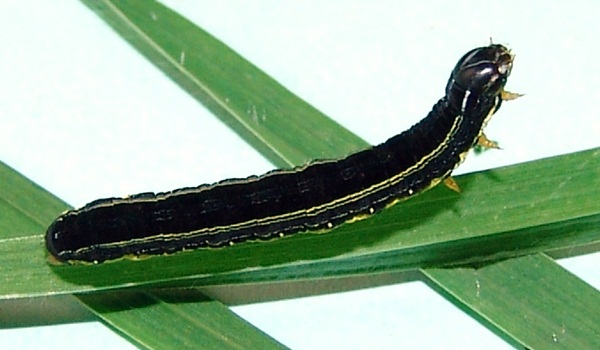What CABI Is Doing To Tackle Major Coffee Rust Outbreaks In Central America
Guatemala has declared a state of agricultural emergency after coffee rust fungus has affected approximately 193,000ha of coffee, equating to 70% of the national crop. As a result of the outbreak, Guatemala is releasing $13.7m (£8.7m) in emergency aid to help farmers buy pesticides and to inform farmers on ways to manage the disease. Honduras…
A Sting In The Tale- EFSA Assesses The Risks of Neonicotinoids To Bees
Bees represent a proportion of the insects that contribute to the pollination of crops, and the potential impact of observed declines in bees on crop yields, as well as their importance as pollinators of wild flowers, has resulted in significant attention and controversy in determining the causes of bee declines. No single factor has been…
Why food losses are even greater than the Global Food report by IMechE says
by Daniel O’Hara Yesterday saw the release of a report from the Institution of Mechanical Engineers which highlighted the shocking level of waste within the global food system. The report, ‘Global Food – Waste not, want not’, claims 30-50% (or 1.2-2bn tonnes) of all food produced is wasted. In the context of a rapidly growing…
The Climate Reality Project- Coffee Production Hit by Climate Change
[ustream id=27051308 hwaccel=1 version=3 width=480 height=302] Video streaming by Ustream Recently aired as part of The Climate Reality Project (founded by Al Gore), this documentary contains a 5 minute film about climate change and smallholder coffee production in Colombia. The film featured as part of a 24 hour online stream of climate documentaries and discussions…
Armyworms devastate crops in Zambia, threatening food security
Armyworms in Zambia are threatening food security by reducing crop yields. This was the message from former Agriculture Minister Eustarkio Kazong, speaking in an interview for Zambian radio station, QFM. Armyworms are attacking crops, causing major damage to maize, cassava, sorghum and rice. In Kabwe, the capital of the Central Province where the first cases…
Typhoon Devastates 10,000 ha of Banana Plantation In the Philippines
The Philippines, the world’s third largest exporter of bananas, has lost up to a quarter of its banana plantations after typhoon Pablo, also known as typhoon Bopha, struck. The typhoon is one of the most powerful ever recorded in the island of Mindanao and has caused the deaths of over 400 people as well as…
Slicing Into The Bread Wheat Genome
Bread wheat (Triticum aestivum) is a globally important crop that accounts for 20% of the calories consumed by the world’s human population. Major work is underway to increase wheat production by expanding knowledge of the wheat genome and analysing key traits, however due to the large size and great complexity of the bread wheat genome…
Plantwise Plant Clinics in Trinidad and Tobago
Trinidad and Tobago Country Coordinator Shamela Rambadan sent the photo below of a Soursop (Annona muricata) plant brought into a clinic in County Victoria in Trinidad and Tobago by farmer Ramesh Ramnanan last month. The symptoms described included yellowed, distorted leaves and visible insects on the leaves, as seen in the photo. Plant health officer…
Floods in Haiti and India devastate crops
Hurricane Sandy has left fields in the south of Haiti under water, causing crop losses of up to 40%. This follows damage from a drought and the effects of Hurricane Isaac earlier this year. Meanwhile, 9000 miles away in Andhra Pradesh, India, rice farmers are also suffering with their crops waist-deep in floodwater following several…
The Soybean Gene: Scientists Discover the Key to Nematode Resistant Soybeans
Soybean (Glycine max) is an important crop that provides a sustainable source of protein and oil worldwide in countries such as the USA, Brazil, Argentina, India and many African countries, including Nigeria, South Africa and Uganda. The soybean cyst nematode Heterodera glycines is a microscopic roundworm that feeds on the roots of soybean and is…
- « Previous
- 1
- 2
- 3
- Next »


